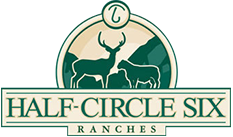Raising Dorpers continues to be a pleasure for Jennifer and I. Many breeders have written about how easy the Dorper is to care for. No shearing, less drenching, excellent weight gain on pasture, excellent mothering ability, and the list goes on.
University studies and Dorper breeders have noted the vigor and will to live that the Dorper lamb has. Our ewes seldom need any assistance lambing and do an excellent job of cleaning and encouraging the lambs to nurse. There have been many days when we have been eagerly anticipating lambs and ready to help if needed only to find our assistance is not needed. What a pleasure! I love lambing time. It is rewarding when your ewes do just what nature intended and care for their newborn lambs, but on occasion something will go wrong. The ewe may die, become sick, or just walk off from her lamb. Luckily I have not had this happen to any of our Fullblood Dorper sheep, but I recently had a young Katahdin ewe abandon her lamb. I will let you in on the history of this ewe and help explain possible reasons for the lamb to be left on its own. Last year we had some feral dogs attack our sheep and goats and the damage was incredible. We used every means possible to stop these dogs but they came and went from the pasture for several weeks before we got them. The ewe in question lambed for the first time last spring. I believe she was so traumatized that she may never raise a lamb on her own. This scenario is something all ranchers and farmers should realize when and if (A BIG IF) compensation is paid for damage caused by dogs. I found her lamb near the water trough in fairly good condition but obviously abandoned and hungry. I took the lamb and located the herd, which is not easy as the pasture they are in is over 700 acres and is extremely rough and rocky. When the herd of sheep and goats was located I let the little lamb go and hoped for the best. After an hour or so it became clear that for whatever reason the mother would not reclaim her lamb. As I drove home in my old and not so beautiful four-wheel drive ranch truck I could not help but notice the improvement we have begun to make by using Katahdin ewes in our crossbreeding program. They really produce nice lambs when crossed with the Dorper. I dread the process of taking a small animal in need of its mother and replacing her with a bottle and plastic nipple. It seems most lambs and kids really try our patience those first few days of feeding. The remarkable thing about this Dorper sired lamb is that he took the nipple the first time and began to suck just like he had always eaten from a bottle! He has been gaining weight and eating pelleted feed since he was a week old. I must say this has been the most rewarding experience I have ever had with and orphan lamb or kid.
Our Dorper flock has been very profitable, not just from the current breeder market perspective, but from the fact that we do not have to spend much time or money on them. Our experience has proven the fact that even in the arid conditions of West Texas the Dorper will find the needed forage to thrive. The Dorper grows its light cover of wool and hair for winter protection then sheds in summer. Many of this breed maintain a small amount of wool and hair on their top line. I initially disliked this and presumed it was a fault of the breed. After raising these sheep and being educated by the likes of Ron van der Merve, Dolf Lategan, and John Dell from South Africa I’ve changed my perspective. That small amount of wool on the back provides protection from the intense summer sun. I am so pleased to have an animal that thrives regardless of temperature or weather. Little or no hoof trimming is needed when on pasture, and our sheep only are drenched once or twice a year. Many sheep and goat people may not be aware of the fact that Dorper sheep are being successfully raised not only in South Africa and the United States, but also in Canada, Mexico, the Caribbean Islands, and Australia. I wonder if the men who began this breed knew they were creating a “World Breed”? I do not know exactly what the Africans were thinking but I know they got it right!
Bring on the cold, wet, and snowy Northern winters and the scorching heat of the Southwest, my Dorpers are ready for it!
Philip Glass
Half-Circle Six Ranches
